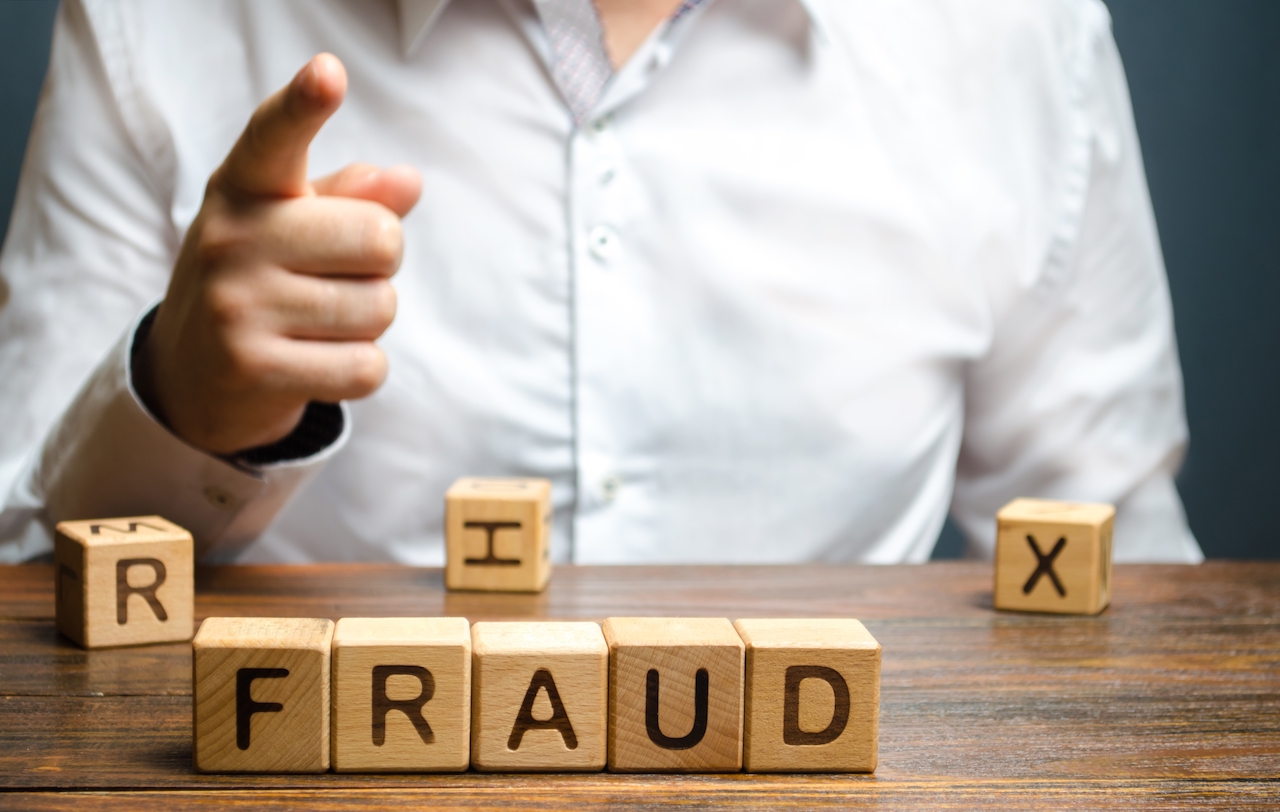During the Covid-19 pandemic, scams have been on the increase. Criminals have been exploiting the confusion, fear and desperation of people at such a difficult time.
Some of these scammers claim to be from HMRC to gain your trust.
What is an HMRC Scam?
Imagine getting an email, a text, or a call from HMRC. It might say that they owe you some money, and they need some bank details to pay you. Or it might say that there’s some kind of problem, and they need some personal details before they can sort things out.
The text or email might look genuine. And the phone call might sound genuine. But most likely, this is a scam – a phishing scam, to be precise. If you share your bank details or your personal details with a scammer claiming to be from HMRC, they could empty your bank account, or they could commit identity fraud in your name.
But how do you know if that message from HMRC is genuine? How can you spot a HMRC scam, and what should you do if a scammer contacts you?

Examples of HMRC Scams
The government has a regularly-updated list of all the latest HMRC scams of which they’re aware on their website.
Examples include:
- A range of Covid-19 scams, including a fake email instructing you to apply for the SEISS grant, a “lockdown support plan” text, and a “Covid-19 refund” text.
- Tax rebate and refund scams, usually in the form of an email with a dodgy attachment, or linking to a dodgy website. Scammers have also used text messages for this sort of scam, and even WhatsApp.
- Suspicious phone calls, often with an automated message claiming that HMRC is filing a lawsuit against you.
- Social media scams, including offers of tax refunds found on Twitter.
Read the full list of HMRC scam examples.
Do HMRC Ever Contact You By Phone?
On the page we linked to above, HMRC outlines a few things that they never do – including when they’ll never make an automated phone call, text or ask for personal information.
HMRC will never:
- Ask for personal or financial information via text message.
- Give specific amounts for how much you owe, or how much they owe you, in a text message.
- Make an automated phone call to claim they’re taking legal action against you.
- Use WhatsApp, Twitter or other social media platforms to contact customers about a tax refund.
According to the government’s website, the only time HMRC will contact you by phone is to offer debt management advice. And even then, they’ll only contact you if you’re behind on payments.
You’ll receive this call as an inbound phone call to your mobile or landline. It’s a voice prompt, meaning that it’s automated. So if you ever get a phone call from a person claiming to be from HMRC, you might reasonably assume it’s a scam.
A genuine call from HMRC will either give details on how you might pay HMRC, or it might give you a helpline number to contact. They will never ask for any personal or financial information over the phone.
So How Do I Know if a Call From HMRC is Genuine?
First, ask yourself – Would HMRC ever use a mobile number? Of course they wouldn’t! So if you get a call from a mobile number claiming to be from HMRC, you can be sure that it’s a scam.
Beyond this, just remember:
- A call from HMRC is more likely to be an automated voice prompt than a call from a real person.
- HMRC is unlikely to quote exact figures for tax rebates or outstanding bills over the phone.
- If HMRC wishes to take legal action against you, they won’t call you first to let you know.
- HMRC will never ask for personal or financial advice over the phone.
You can find a complete list of genuine HMRC contacts for phone, text, and email messages.
What Do I Do If I Get Contacted by a HMRC Scam?
First, a couple of things you should never do.
Never:
- Share your personal or financial details over the phone, or via text or social media.
- Click any links or open any attachments in any messages claiming to be from HMRC – not until you’re absolutely sure it’s genuine. Once more, you can find a list of genuine contacts.
Another thing to remember is something that’ll help you stay resilient against scams of all kinds: If something seems too good to be true, then it probably is. If you get a message talking about a tax rebate or refund, then it’s most likely a scam.
If you get an email, a text, or a social media message from HMRC and you suspect it’s a scam, ignore it. Don’t interact with it in any way. And if you get a phone call claiming to be from HMRC and you suspect it’s a scam, hang up immediately.
After this, it pays to report HMRC scams on the government’s website. The better HMRC understand these sort of scams, the better they can help you and others stay safe. Head here to report a HMRC scam.
What Happens If I Lose Money to a HMRC Scam?
If you fall victim to a HMRC scam, you can contact Action Fraud for help.
If you’re running a business, you can safeguard yourself against the effects of scams with the right kind of insurance. Cyber insurance can cover you for any losses you make as a result of security breaches and identity theft.
Learn more about cyber insurance – how it works, what it covers, and to get a free no-obligation quote in minutes.
If you have any questions or would like to discuss your options please contact the Tapoly team at info@tapoly.com, call our help line on +44(0)207 846 0108 or try our chat on our website.

